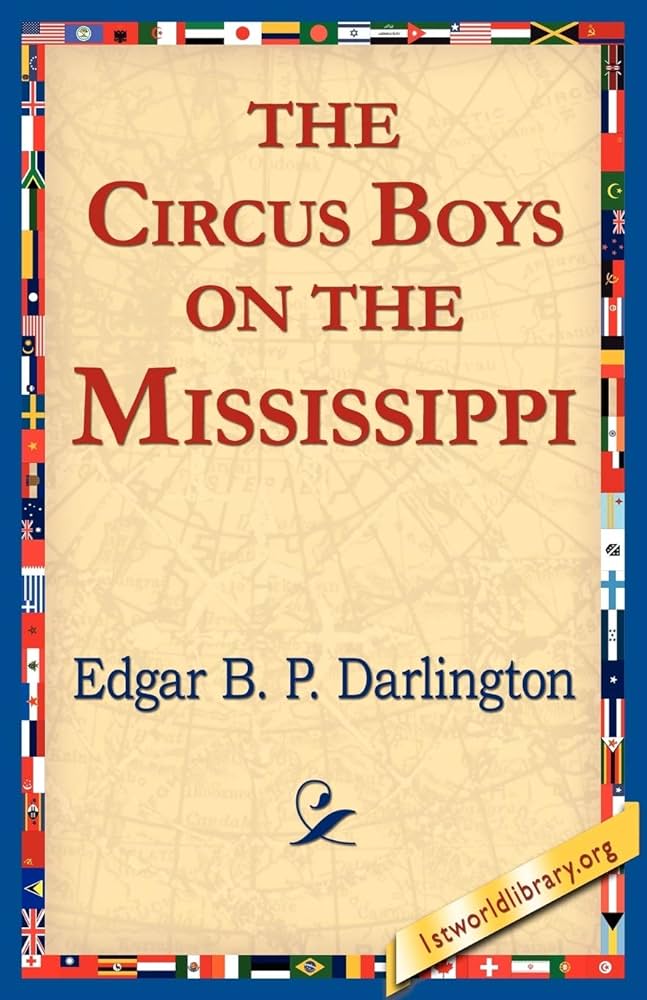Chapter XI — The Circus Boys on the Mississippi
byChapter XI opens in the cramped quarters of the riverboat with Teddy Tucker in a state of mild panic. The prized ostrich egg, which he guarded with great enthusiasm, has vanished from his locked trunk without a trace. Teddy, frustrated and suspicious, scours the cabin while Phil Forrest watches with a measured calm, skeptical of the drama but intrigued by the oddity of the theft. Every item remains undisturbed except for the egg, heightening the mystery. Phil, ever observant, begins mentally cataloging possible suspects, though he withholds his thoughts from Teddy to avoid fanning the flames. The absence of any forced entry hints at an inside job, which only deepens the suspicion that someone within the circus has taken the item—possibly for mischief rather than malice. Teddy, determined to recover it, begins questioning anyone he encounters, setting off ripples of gossip among the performers.
Mr. Sparling is soon brought into the matter and listens intently as Teddy explains his theory. Though the situation may appear trivial to an outsider, Sparling understands the deeper implications: if a theft has occurred on board, it signals a breach of trust among the troupe. He promises a thorough inquiry, recognizing that even a light-hearted prank can fester into deeper division if not resolved. Meanwhile, Phil takes it upon himself to monitor behaviors around the boat, especially among those he deems most likely to pull such a stunt. His eye is particularly drawn to Diaz, a brooding performer whose cold stare betrays a guarded disposition. A tense exchange between Phil and Diaz follows, one that doesn’t confirm guilt but certainly hints at something being amiss. While no concrete evidence ties Diaz to the incident, the encounter unsettles Phil. He leaves with a strengthened resolve to uncover the truth quietly and strategically.
Phil’s methods reveal a subtle detective-like nature. He speaks gently to the crew, watching their body language more than listening to their words. His approach contrasts with Teddy’s loud confrontations, creating a balance between tact and energy. He notices how some crewmates dodge the topic, while others seem overly eager to mock Teddy, perhaps as a cover for their own guilt. Behind the scenes, the atmosphere on the boat shifts. Jokes about the egg become less funny as tensions build and alliances begin to strain. Performers who once shared meals now whisper behind backs, each quietly wondering if the thief is closer than imagined. Phil recognizes these cracks and aims to resolve the issue before they widen further. Trust, once lost in a traveling group like theirs, is difficult to regain.
The egg, seemingly insignificant, now represents something much larger: the health of their circus family. Phil discusses this point quietly with Mr. Sparling, who agrees that unity must be preserved at all costs. Together, they devise a plan not only to locate the missing item but also to test the loyalty of those aboard. Teddy, still wound up, is kept in the loop just enough to keep him from taking matters further into his own hands. Meanwhile, Phil revisits Diaz under the pretense of a casual check-in. The Spanish clown’s tone has changed, perhaps aware that eyes are on him now. Phil notes the defensive stance and tensed jaw, mentally adding more weight to his suspicion.
Circus life depends not just on performances, but on the delicate relationships behind the curtain. Any rift—no matter how small—can impact the cohesion needed for success. That’s what makes Phil’s investigation so vital. He isn’t only solving a mystery; he’s holding together a fragile system of mutual reliance. The chapter ends with a subtle suggestion that Diaz may not be working alone. A quiet glance exchanged between him and another performer doesn’t go unnoticed. Phil stores this detail away, knowing that clues often come in gestures more than confessions.
In reality, small disputes can derail even the most coordinated teams, especially in enclosed environments like riverboats or traveling shows. Readers are reminded that maintaining harmony requires more than cheer—it requires active stewardship of relationships and trust. Phil emerges not just as a performer but as a quiet guardian of that harmony. Through his eyes, we see how even a missing egg can crack open deeper truths. The tension simmering beneath the surface promises that what comes next will challenge not only the unity of the troupe, but Phil’s ability to navigate loyalty, leadership, and confrontation with care.

